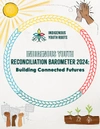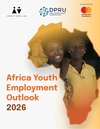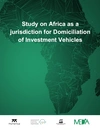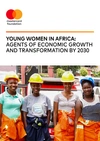Building off the National Youth Reconciliation Barometer (2019), this project focuses on how Indigenous youth (ages 18-29) envision their own futures through themes such as culture, wellness, education, meaningful work, solidarity, and reconciliation. Through these themes, we examined what youth wish for in their futures and how they envision success. We also looked at what barriers need to be addressed to ensure Indigenous youth are empowered and connected as dynamic leaders in vibrant and thriving communities. To ensure a diversity of voices were represented, we engaged with 1,125 youth through in-person and online sharing circles, and an online survey.
As we know, there is very little large-scale research data that exists that is designed and led by and for Indigenous youth. It is our hope that this project can support in changing that and in highlighting the importance of uplifting youth-engaged research, especially as it relates to exploring concepts of reconciliation and meaningful attachment to Indigenous worldviews, and futures. Approaching research with a focus on empowering youth means youth are not only active participants contributing their insights and perspectives to the project, but that they support, lead, and contribute at multiple stages during and after the completion of the report. The goal is to have youth voices guiding the direction and format of the research, while also fostering their skills and capacity to use it as an advocacy tool to impact their communities’ outcomes following the completion of the report.
Relatedly, Indigenous youth and their communities have made it clear that the language of reconciliation can't and shouldn't be invoked without tangible action that supports the self-determination and prosperity of Indigenous nations. This project recognizes and approaches reconciliation as something that must be measured next to how and whether Indigenous youth and their communities are empowered to thrive safely and in a self-defined way.
Within this project, it was important for us to see if and how the views of Indigenous youth have changed since the 2019 National Youth Reconciliation Barometer. While there were some key differences between the two projects, which are highlighted further later in the ‘Methodologies’ section, we ensured that parts of the two projects could be compared to each other when developing the survey and sharing circle questions.
Visit the Indigenous Youth Roots partner page to learn more.




